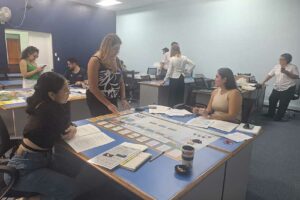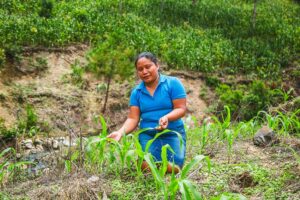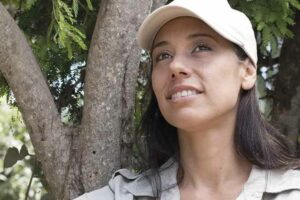EfD global meeting on environmental economics was the ideal setting for sharing research results
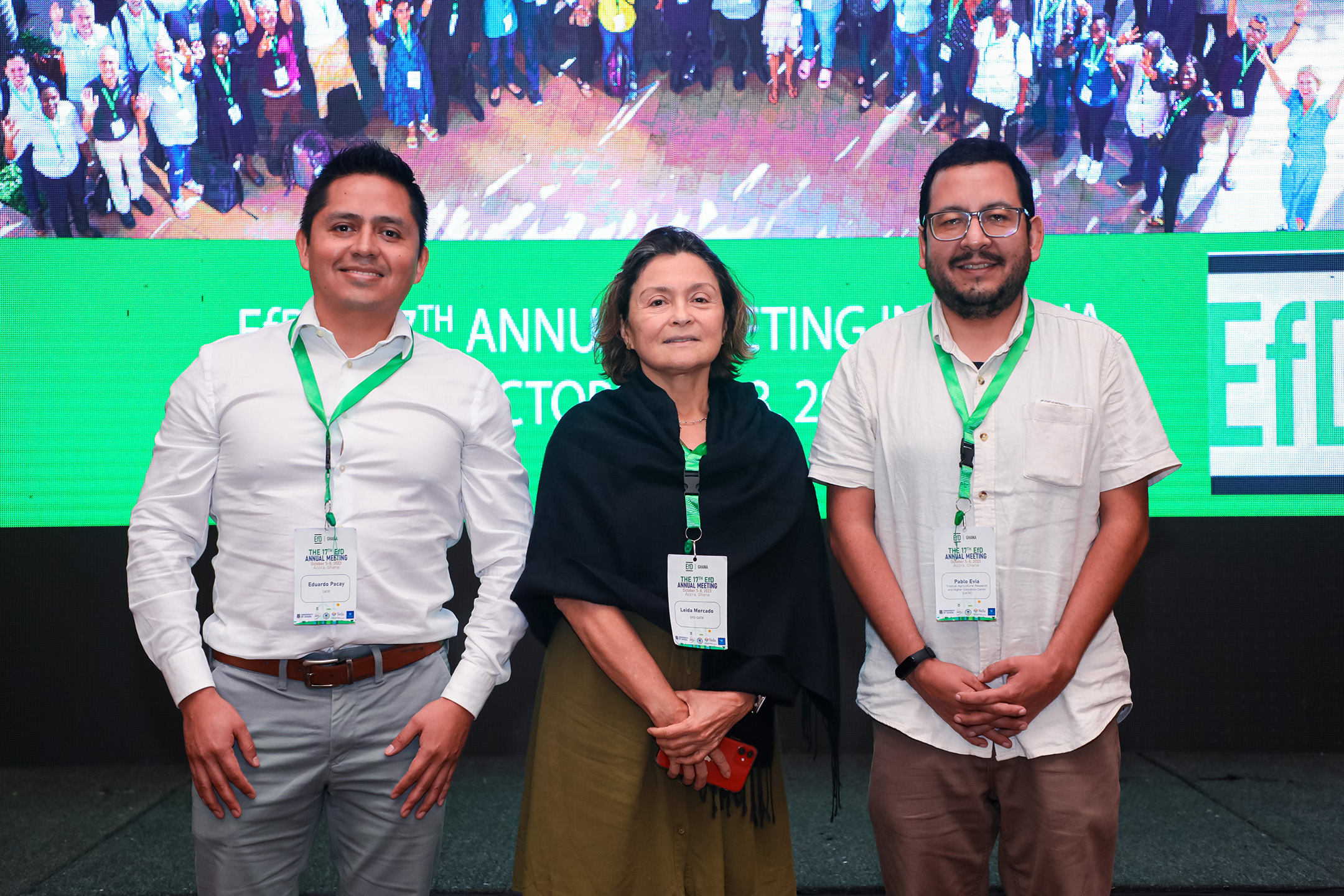
- Water economics, food security and responsible consumption were key topics shared by CATIE researchers during the most important global meeting of the year of the EfD initiative.
October 19, 2023. The 17thth Annual Meeting of the Environment for Development (EfD), initiative was held in Accra, Ghana from October 5 to 8, bringing together 177 environmental economics researchers from around the world.
Among these people were three representatives from CATIE (Tropical Agricultural Research and Higher Education Center), the institution that has hosted EfD Central America.
Leida Mercado, director of Research for Inclusive Green Development at CATIE, Pablo Evia and Eduardo Pacay, researchers from CATIE's Environmental Economics and Sustainable Agribusiness Unit (UEAAS/EfD), were in charge of sharing information and conveying key messages on research conducted in the region on topics such as food security and water economics. At the same time, two participatory sessions of the EfD collaborative program called Sustainable Consumption and Production, better known as SCOPE, were organized.
Presentation of results
Eduardo Pacay presented the research entitled Social and ecological factors affecting the choice of volumetric pricing in rural water systems, while Leida Mercado shared information on the research entitled It's not just what you have, but what you do with it: relations between production diversity and dietary diversity in Central America over a 5-year period.
Pacay mentioned that the work he presented used a sample of some 5,000 community water organizations in Honduras, Nicaragua, Panama, Colombia and Bolivia. The research sought to understand how institutional and environmental factors influence and interact with each other on the choice to use volumetric water tariffs.
"Volumetric pricing is a useful policy tool for water resource conservation and water service improvement," said the researcher.
"The research is novel in that it generates evidence on the adoption of volumetric water pricing in rural contexts in developing countries in Latin America, using a large sample of community water organizations," Pacay said.
Among the results of the research, it was highlighted that community water organizations that have higher institutional capacity, serve larger populations, have more expensive water harvesting technology and face conditions of lower water availability, are the most likely to adopt volumetric water pricing.
This research was conducted with UEAAS/EfD researchers Róger Madrigal, Pablo Evia, and Felipe Carrera, in addition to University of Montana researcher Katrina Mullan and Duke University researcher Subhrendu K. Pattanayak.
Two productive sessions for SCOPE
The SCOPE collaborative program organized two sessions. "The first session was open and allowed for a participatory identification of the issues that SCOPE should focus more on, such as waste and the influence of consumption patterns in developed countries, which cause waste generation and affect countries located in the global south," shared Pablo Evia, coordinator of the SCOPE program.
The second session was more closed, but allowed researchers who are part of the program and belong to EfD centers in Central America, Chile, China, India, Nigeria, South Africa, Tanzania and Vietnam, to agree on the importance of developing research proposals on the topics identified.
"The SCOPE collaborative program is coordinated from CATIE's UEAAS/EfD and promotes actions towards the transformation of consumption and production, so that they are harmonious with the natural environment, but always in accordance with the sociocultural context and rights," said Evia.
SCOPE's Contributions
Part of the contributions that this collaborative EfD program motivates is to raise awareness about consumption decisions, both at the individual level and from the perspective of society as a whole. Such decisions have effects on the challenges we collectively face, such as climate change, biodiversity loss and pollution.
In light of this, an opinion piece was recently published in the Costa Rican newspaper El Observador and as part of a special called 23 Voices of Climate Change entitled Every Choice Counts by Changing Our Consumption and Production Patterns.
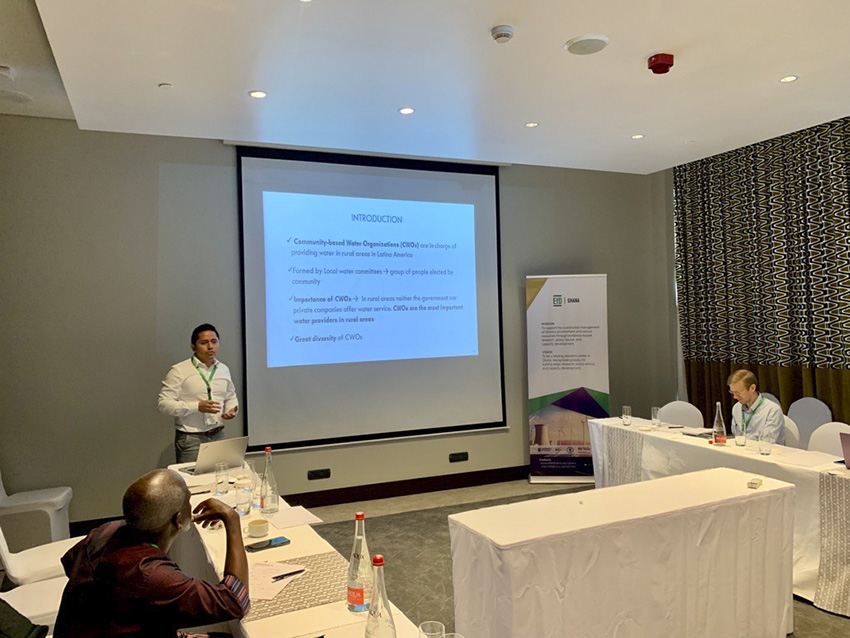
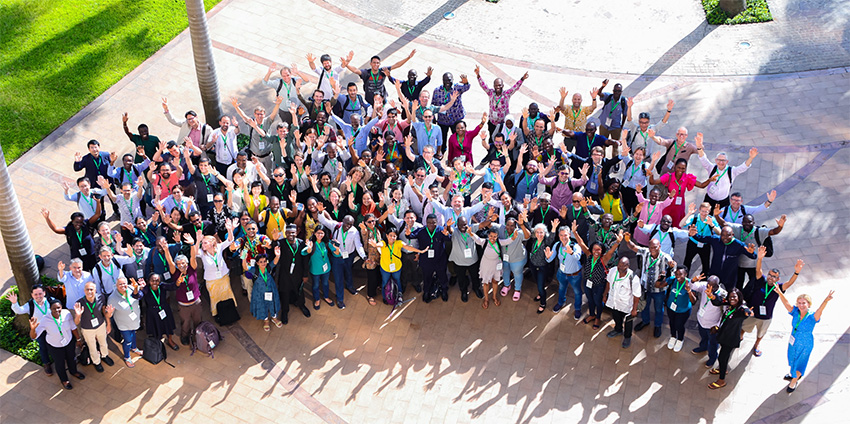
More information:
Eduardo Pacay
Researcher
Environmental Economics and Sustainable Agribusiness Unit (UEASS/EfD)
CATIE
epacay@catie.ac.cr
Pablo Evia
Researcher and SCOPE Coordinator
Unit for Environmental Economics and Sustainable Agribusiness (UEAAS/EfD)
CATIE
pablo.evia@catie.ac.cr
Written by:
Marianela Argüello L.
Communication and Knowledge Management Officer
Unit for Environmental Economics and Sustainable Agribusiness (UEAAS/EfD)
CATIE
marguello@catie.ac.cr
Tag:agua, economía ambiental, EfD

